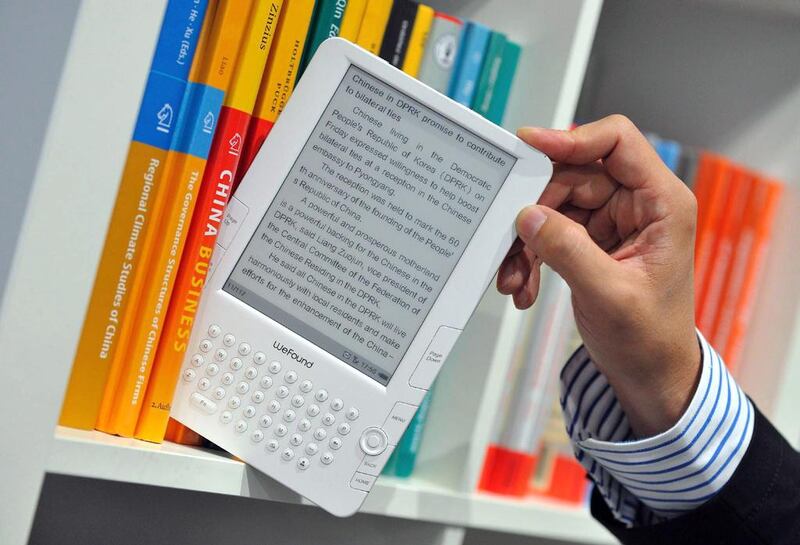At first blush, the growing success of Lego, home renovations and vegetable gardening might not appear to have anything to do with the sagging fortunes of ebooks, but there actually are good reasons why they are all probably related.
Ebooks are tanking, according to several measures. New figures from the UK Publishing Association show that sales declined by 17 per cent in the United Kingdom last year. Sales of physical books and journals, meanwhile, increased 7 per cent.
The story is similar in the United States, where ebook sales fell 18.7 per cent over the first nine months of 2016, according to the Association of American Publishers. Paperback book sales, meanwhile, grew 7.5 per cent while hardcovers increased 4.1 per cent over the same time.
Sales of e-reading devices such as the Kobo and Amazon’s Kindle are also sinking. The category declined globally by 40 per cent from 2011 to 2016, according to the analysis firm Euromonitor International.
All told, ebooks have stalled out at about a quarter to a third of the overall book market, a surprise to many observers who just a few years ago thought they would follow the same trajectory as other electronic media. Digital downloads and streaming subscriptions, for example, overtook CD sales in 2014 to make up the majority of the music industry’s revenue and they show no signs of slowing down.
Like digital tracks, ebooks have several advantages over their physical kin. They are ultra-portable, meaning that thousands can be toted around at once, and there’s no need to visit an actual store to buy them. They can be purchased on many devices with a few quick taps.
__________________________________
Winner of the Week: Twitter
The stock surged after the social media company unveiled its plans for a video streaming service, with partners including Live Nation, BuzzFeed and Bloomberg. The competition for online video is heating up.
Loser of the Week: Apple
It might have loads of cash in the vault but the company sold fewer iPhones than a year ago and posted lower-than-expected revenue for its latest quarter, with sales in the all-important Chinese market driving the results.
__________________________________
Industry critics blame the fizzle on publishers, who they say have colluded to raise prices to the point where ebooks are typically not much cheaper than print versions. They also point to copy protection software – which limits trading and re-selling – as impinging on ebooks’ appeal.
For their part, publishers suggest the shift is instead being driven by consumers wanting a break from always being online.
"There is generally a sense that people are now getting screen tiredness, or fatigue, from so many devices being used, watched or looked at in their week," Stephen Lotinga, chief executive of The Publishers Association, told The Guardian.
While there is some substance to the collusion argument, digital fatigue is indeed the more likely culprit, especially when other trends are considered – which is where Lego comes in.
Lego’s growth over the past decade has been nothing short of astonishing. The Danish toy maker’s revenue has increased by about 15 per cent a year for the past 12 years. The company is even having to scale back on marketing so that new factories can come online to meet existing demand.
Home renovations are subject to a similar explosion in popularity, if the growth of Home Depot can be used as a proxy. The company, which operates more than 2,200 hardware and renovation supply stores in North America, is flying high. It posted record revenue and profit in 2016 and its shares have tripled in value on the New York Stock Exchange over the past five years.
Home gardening is also enjoying newfound appeal. A 2014 study found that more than a third of American households were growing vegetables at home or in a community garden, an increase of 17 per cent in five years. A study the same year found similar results in the United Kingdom.
There are many factors contributing to the stellar growth in these disparate industries and activities, but there’s also an undeniable underlying connector between them.
Whether it’s kids building plastic toys or adults erecting a shed in the backyard or digging in the dirt, they all offer escapes from the internet and staring at screens. They all require people to be present in the real world - to use their hands, to do something physical. They’re temporary digital breaks – therapeutic and stress-relieving escapes from the technology that inevitably complicates and speeds up our lives.
A survey of Britons last year found that a third of respondents had engaged in digital detoxes, spending as much as a month away from the internet. Nearly two-thirds said they considered themselves hooked on their devices.
It’s clear that many people are aware of the downsides of too much internet and gadget use. Some are actively trying to get away from it.
It’s no wonder, then, that people are taking to disconnected activities and hobbies, whether it’s building Lego, renovations, gardening or, yes, even reading physical books.
Peter Nowak is a veteran technology writer.
business@thenational.ae
Follow The National's Business section on Twitter





